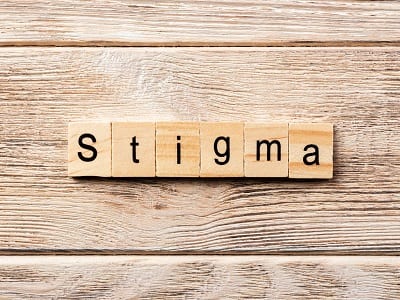Individuals with mental illness and substance use disorders continue to be unfairly stigmatized by those who do not understand these are chronic, treatable conditions. Suffering from one or both of these disorders does not mean the person is dangerous, at fault for their disorder, or, in the case of substance use disorder, too weak to stop using on their own.
When people, communities, and even the health care system stigmatize and discriminate against those with mental health or substance use disorders, they are undermining the self-worth of a chronically ill individual, which may reduce their willingness to seek treatment.
“Untreated drug and alcohol use contribute to tens of thousands of deaths every year and impact the lives of many more,” according to the National Institute on Drug Abuse (NIDA). The NIDA attributes the stigma surrounding substance abuse to be a large part of the problem.
Health Care System
It’s not uncommon for health care workers to stigmatize those with substance use and mental disorders. When health care professionals are not adequately trained to treat those with a mental illness or substance use disorder, they may react out of fear or anxiety rather than with compassion and understanding.
Untrained personnel may not recognize the signs of acute intoxication or withdrawal symptoms or understand that a behavioral outburst may be linked to mental illness. In some cases, they may even refuse treatment.
To overcome such stigma in the health care system, all workers need to learn to recognize these disorders as chronic, treatable conditions, just like diabetes or asthma and know how to provide appropriate treatment.
We Can Help End the Stigma
- Stop using stigmatizing language. Avoid unfairly labeling a person suffering from a mental health or substance use disorder with negative words and terms like “addict,” “drunk,” or “drug abuser.” NIDA provides an excellent chart on terms to avoid, terms to use, and why, to help reduce stigma and negative bias when talking about addiction.
It’s important to refrain from defining a person with a substance use or mental disorder by their condition. For example, the National Alliance on Mental Health (NAMI) explains that a person experiences bipolar disorder or mental illness, they are not bipolar or mentally ill.
- Volunteer to spread the word. Become active with campaigns like National Recovery Month or organizations like NAMI or other organizations or campaigns that work to reduce stigma.
- Seek treatment. Don’t let the fear of being judged stop you from getting the help you need and deserve. Get counseling, learn more about your chronic condition, and commit to a treatment plan.
Once you are in recovery, consider sharing your story with others at your support group, an event, online, or with friends and family. This helps spread understanding, lessens the stigma, and increases hope for those in need of help.
The more people recognize mental illness and substance use disorder as treatable conditions, the more people will reach out for treatment and find recovery.
Turning Point of Tampa has been offering Licensed Residential Treatment for Addiction, Eating Disorders and Dual Diagnosis in Tampa since 1987.



